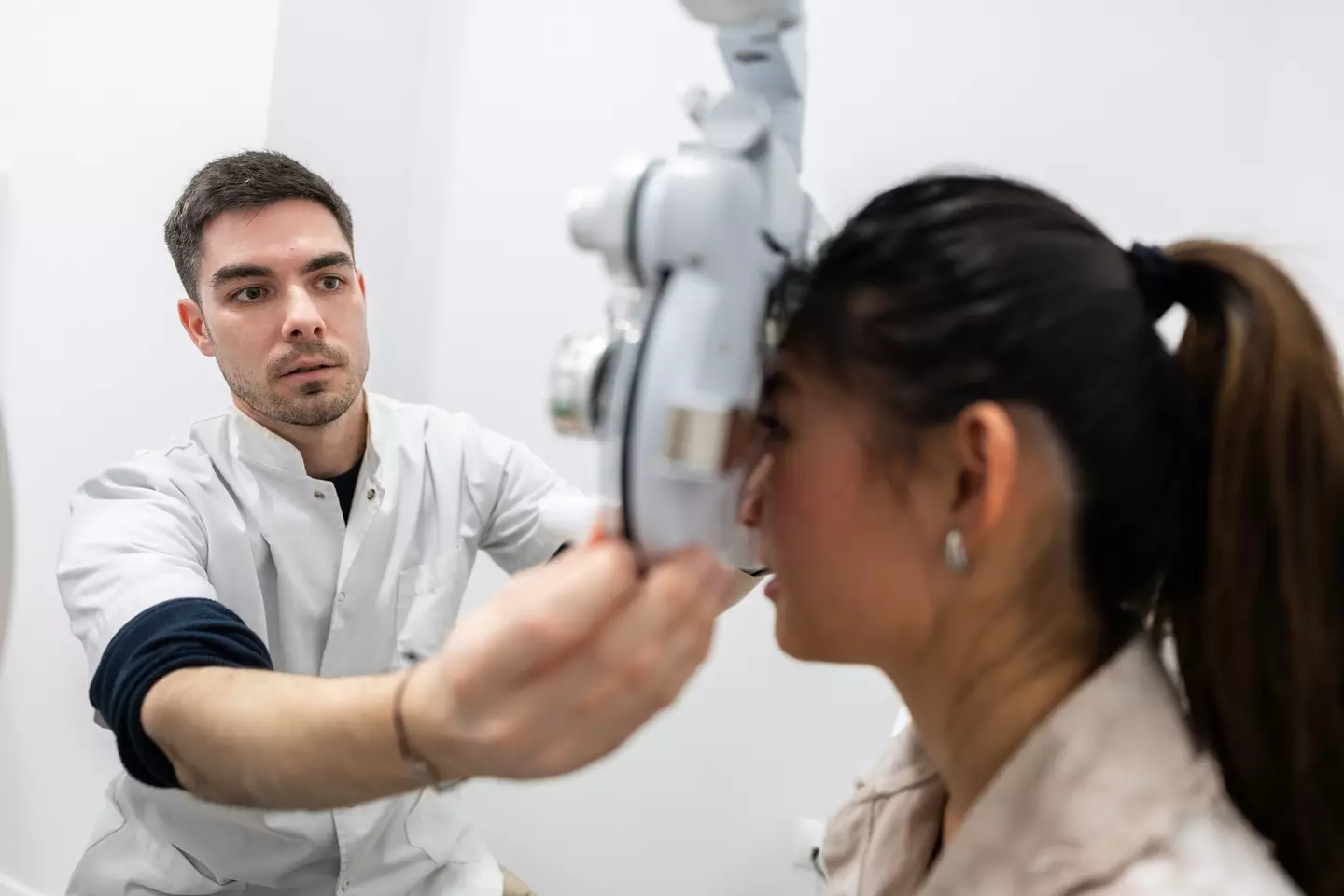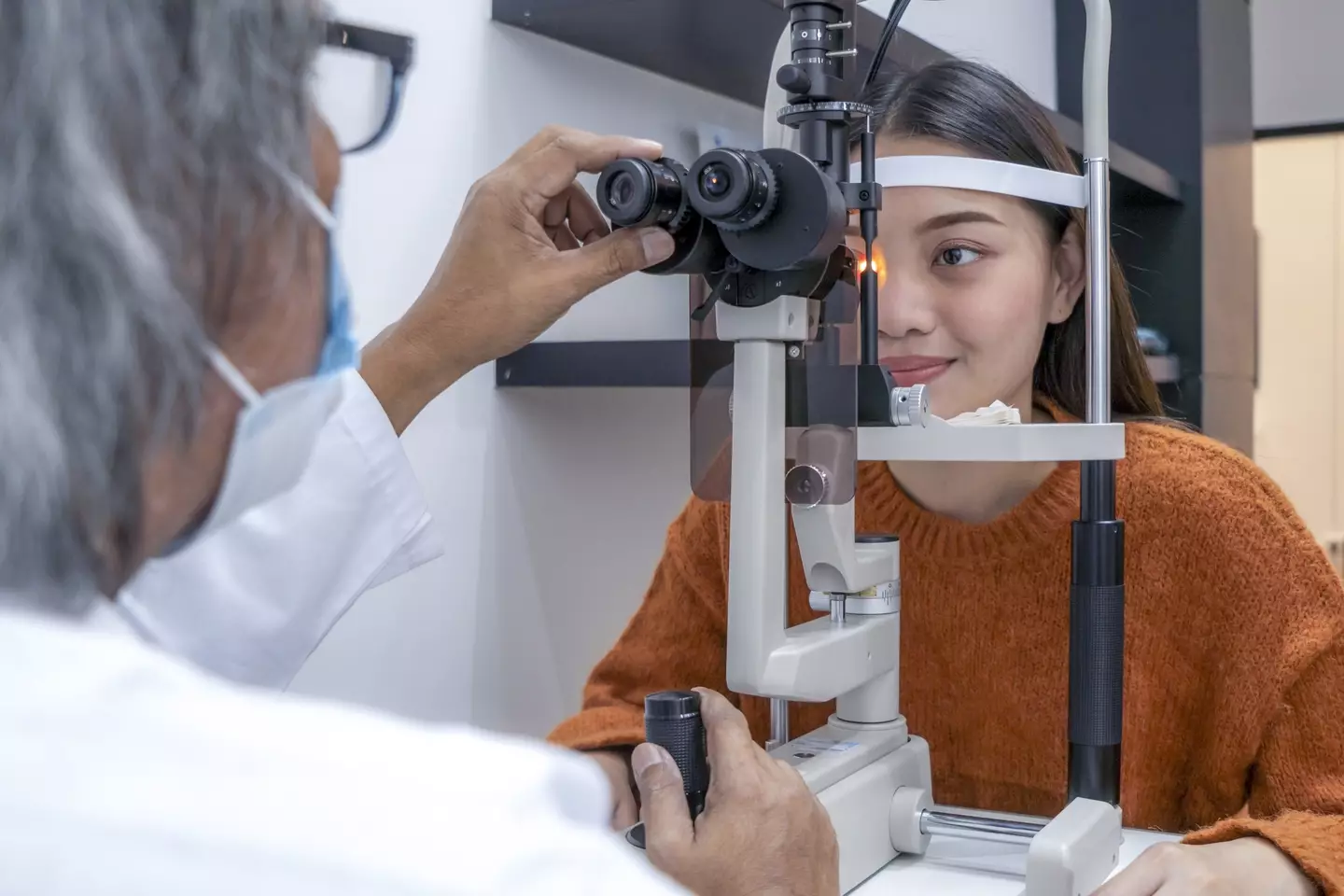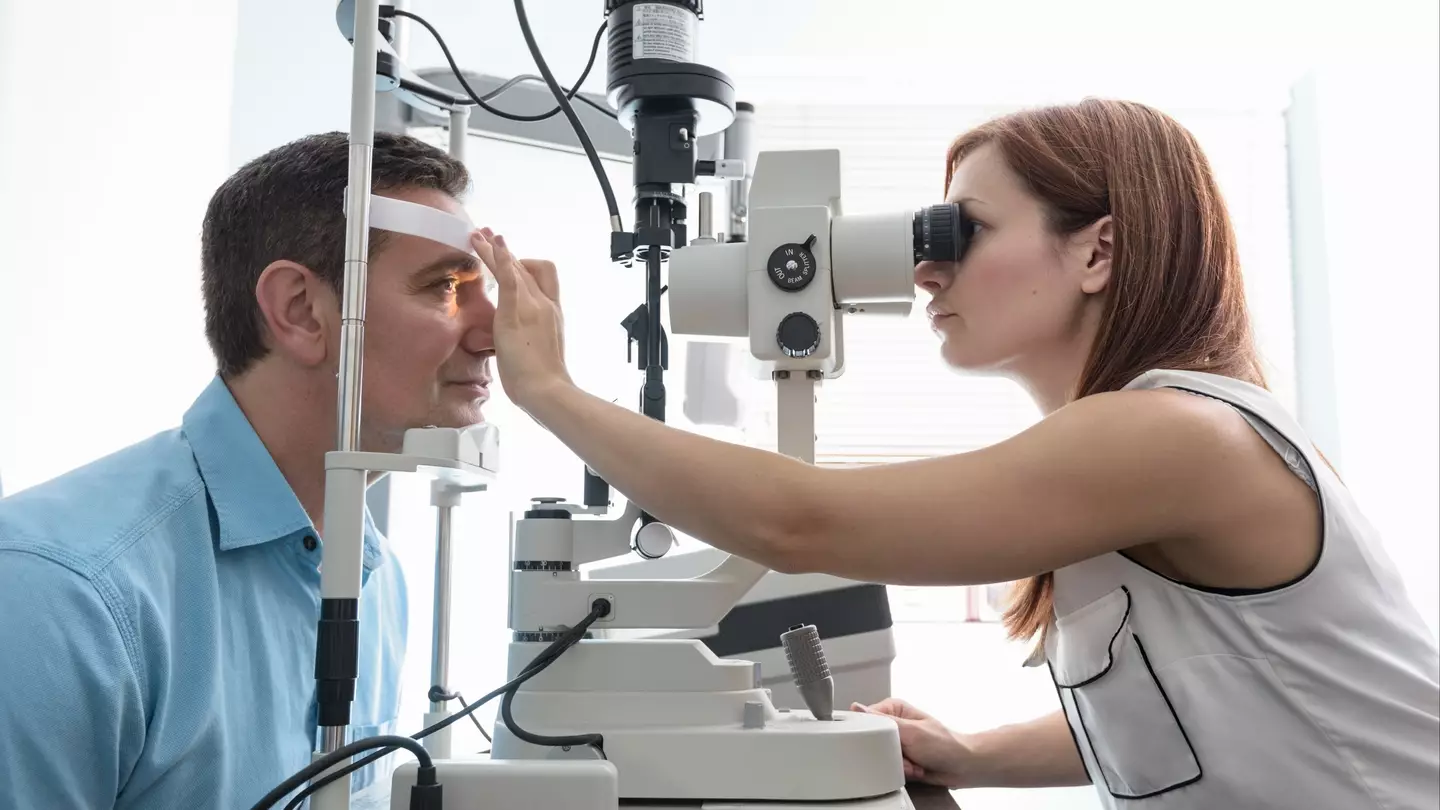Researchers have discovered a startling new eye examination that might be able to forecast dementia decades in advance.
According to scientists, optometrists could potentially identify early signs of Alzheimer’s disease up to 20 years before symptoms manifest through regular eye exams.
This innovative eye test could become accessible within the coming years.
The research and conclusions stem from a 2022 study conducted by Jackson Laboratory in Maine. The scientists conducted experiments on mice, leading them to develop a new method for disease detection.
The objective of this research was to gain a deeper understanding of how eye health directly influences the onset of dementia.
Dr. Alaina Reagan, a neuroscientist at JAX, explained: “Most people over the age of 50 have a vision impairment and get checked annually for any prescription changes. Are they more at risk if they have these vascular changes and is that a point where doctors could start mitigating brain changes.”
The research is not solely focused on identifying a cause and solution for Alzheimer’s, as these conditions can rely on a variety of environmental and genetic factors. However, recognizing the signs could enable clinicians to recommend further testing.

The researchers focused on mice carrying a mutation known as MTHFR677C>T, which is present in 40 percent of the population. Their findings showed that the retinas of these mice exhibited twisted vessels, narrowed and swollen arteries, and reduced vessel branching as early as six months of age.
Reagan stated: “Vessels that appear more twisted and looped than normal can signal hypertension problems because the narrowing tissue limits nutrient and oxygen transport.”
There are unusual connections in the study between retinal cells and early dementia risks. Reagan described the retina as a ‘powerful biomarker’ for Alzheimer’s and dementia.
She noted: “If you’re at an optometrist or ophthalmologist appointment, and they can see odd vascular changes in your retina, that would potentially represent something happening in your brain, which could be very informative for early diagnostics.”

The research established a connection between the vascular health of the retina and human disease. The mice in this study exhibited fewer vessels in their cortex and reduced cerebral blood flow.
The retina is considered part of the central nervous system, allowing researchers to view it as an extension of the brain, sharing the same tissue. Thus, alterations in retinal blood vessels serve as early indicators of brain health.

